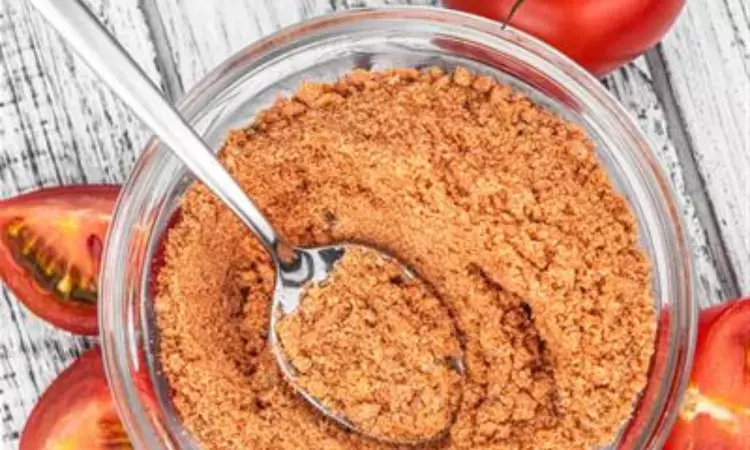- Home
- Medical news & Guidelines
- Anesthesiology
- Cardiology and CTVS
- Critical Care
- Dentistry
- Dermatology
- Diabetes and Endocrinology
- ENT
- Gastroenterology
- Medicine
- Nephrology
- Neurology
- Obstretics-Gynaecology
- Oncology
- Ophthalmology
- Orthopaedics
- Pediatrics-Neonatology
- Psychiatry
- Pulmonology
- Radiology
- Surgery
- Urology
- Laboratory Medicine
- Diet
- Nursing
- Paramedical
- Physiotherapy
- Health news
- Fact Check
- Bone Health Fact Check
- Brain Health Fact Check
- Cancer Related Fact Check
- Child Care Fact Check
- Dental and oral health fact check
- Diabetes and metabolic health fact check
- Diet and Nutrition Fact Check
- Eye and ENT Care Fact Check
- Fitness fact check
- Gut health fact check
- Heart health fact check
- Kidney health fact check
- Medical education fact check
- Men's health fact check
- Respiratory fact check
- Skin and hair care fact check
- Vaccine and Immunization fact check
- Women's health fact check
- AYUSH
- State News
- Andaman and Nicobar Islands
- Andhra Pradesh
- Arunachal Pradesh
- Assam
- Bihar
- Chandigarh
- Chattisgarh
- Dadra and Nagar Haveli
- Daman and Diu
- Delhi
- Goa
- Gujarat
- Haryana
- Himachal Pradesh
- Jammu & Kashmir
- Jharkhand
- Karnataka
- Kerala
- Ladakh
- Lakshadweep
- Madhya Pradesh
- Maharashtra
- Manipur
- Meghalaya
- Mizoram
- Nagaland
- Odisha
- Puducherry
- Punjab
- Rajasthan
- Sikkim
- Tamil Nadu
- Telangana
- Tripura
- Uttar Pradesh
- Uttrakhand
- West Bengal
- Medical Education
- Industry
Water-Soluble Tomato Concentrate Could Improve Heart Health in Older Adults with High Cholesterol, finds study

China: A recent study published in Frontiers in Nutrition has explored the impact of water-soluble tomato concentrate (WSTC) on serum cholesterol levels in middle-aged and elderly individuals in China.
The researchers found that water-soluble tomato concentrate may effectively lower blood pressure (BP) and improve cardiovascular risk profiles in individuals with high cholesterol, offering a promising non-pharmacological approach to enhance heart health.
WSTC is rich in beneficial compounds, including lycopene known for its antioxidant properties. These compounds may play a significant role in improving lipid profiles and reducing inflammation, which are crucial in managing cardiovascular health. With rising cholesterol levels contributing to cardiovascular diseases, Yingxiang Yu, Department of Sports Medicine, Peking University Third Hospital, Beijing, China, and colleagues aimed to investigate the effects of WSTC on individuals with high cholesterol levels by conducting a prospective, randomized, double-blind, and placebo-controlled clinical trial.
For this purpose, the researchers enrolled sixty participants aged 35 to 65 with high cholesterol, dividing them evenly into a treatment group (FFG) and a placebo group (PCG). The study spanned 60 days, including a 45-day treatment phase followed by a 15-day observational follow-up. Participants in the FFG received 300 mg of Fruitflow tablets daily, while the PCG received placebos.
The study led to the following findings:
- There were no significant differences in baseline parameters between the FFG and PCG.
- Post-intervention, the FFG exhibited significant reductions in systolic blood pressure (SBP) and diastolic blood pressure (DBP) by 4.2% (SBP) and 3.8% (DBP), respectively, compared to the PCG.
- These reductions were sustained during the follow-up period. In contrast, the PCG showed no significant changes in SBP and DBP.
- Stratified analysis by hypertension status revealed significant SBP reductions in both hypertensive and non-hypertensive FFG subjects, with a trend toward DBP reduction.
- There were no significant changes in SBP and DBP in the PCG.
- The FFG group showed a significant increase in high-density lipoprotein (HDL) cholesterol, along with a marked reduction in both weight and body mass index (BMI).
- The FFG also showed decreased levels of homocysteine, high-sensitivity C-reactive protein, and fasting blood glucose compared to the PCG.
The authors noted that after the intervention with Fruitflow, there were no abnormalities detected in the coagulation, liver, or kidney functions of the subjects, and no adverse events occurred during the trial period, demonstrating the safety of Fruitflow.
The authors concluded that Fruitflow effectively lowers BP in individuals with hypercholesterolemia and positively influences cardiovascular risk factors with sustained effects. However, they acknowledged that the limited sample size and short duration of the intervention might lead to some underestimations. Specifically, the authors indicated that the small sample size could obscure the dietary impact on the study outcomes. Future research would benefit from a larger sample size to facilitate stratified randomization of potential confounding factors.
Additionally, the authors highlighted that the short duration of the trial might underestimate the long-term effects of Fruitflow on cardiovascular health, underscoring the necessity for a longer intervention period. Overall, they emphasized that these enhancements will provide a solid scientific foundation for using Fruitflow in the targeted management of hypertension and will contribute to the development of novel strategies for leveraging bioactive food components in the prevention and management of cardiovascular diseases.
Reference:
Yu, Y., Wu, Y., Xie, L., & Chang, C. (2024). The effect of water-soluble tomato concentrate on elevated serum cholesterol in the middle-aged and elderly Chinese individuals. Frontiers in Nutrition, 11, 1410420. https://doi.org/10.3389/fnut.2024.1410420
Dr Kamal Kant Kohli-MBBS, DTCD- a chest specialist with more than 30 years of practice and a flair for writing clinical articles, Dr Kamal Kant Kohli joined Medical Dialogues as a Chief Editor of Medical News. Besides writing articles, as an editor, he proofreads and verifies all the medical content published on Medical Dialogues including those coming from journals, studies,medical conferences,guidelines etc. Email: drkohli@medicaldialogues.in. Contact no. 011-43720751


